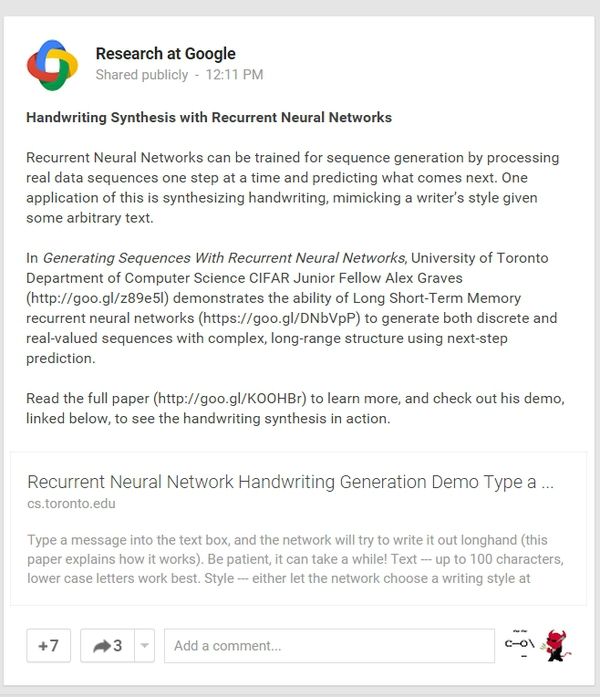Computers can now play Handwriting
Google Research has published a short article about a very interesting study, Alex Graves, a junior researcher in the Department of Computer Science, University of Toronto. Graves Investigation Regarding the long term memory of recurrent neural networks (LSTM). Almost immediately after his entry in the Twitter, both posts and Google+, and Twitter have been removed.
Study Graves Affirms that predicting one data point at a time, recurrent network LTSM can be used to replicate the complex sequences. To illustrate this idea, he chose the synthesis of handwriting, and created a tool that applies it in practice. Using a set of handwritten samples of different people, its program can recreate any phrase in any of the specified style. The result is not perfect, but surprisingly accurate.
If you want to see the process in action, you can personally experience it here. The tool currently has five different handwriting samples, and gives you the ability to write sentences of up to 100 characters.
The idea of this fact a bit annoying. We came to a point where computers can not only read and recognize handwritten texts with reasonable accuracy, they can now also very clearly repeating handwriting. Hard to imagine a number of useful applications this technology to mankind, but tricky – more than enough. Perhaps this is because Google so quickly wiped scientist positions.




